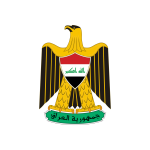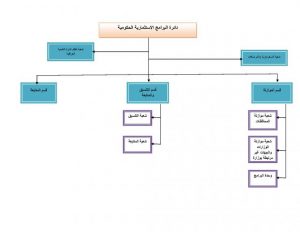Governmental Investment Programs Department
1- Contributing with the Ministry of Finance in preparing the financial framework strategy for the state’s general budget and preparing the foundations and principles adopted in preparing the budget.
2- Contribute with the Sectors Planning Department in developing the features of the government investment program, in coordination with the Ministry of Finance, ministries and governorates.
3 – Contribute to the preparation of instructions and powers for the implementation of investment projects in coordination with the concerned departments.
4- Determining the financial ceilings for the allocations for the development of regions to the governorates in the light of population ratios, based on population estimates issued by the Central Statistical Organization and the ration card.
5- Determining the financial ceilings for annual allocations to ministries and agencies not associated with a ministry in light of the spending capacity and priorities of the stage, in addition to being guided by what was stated in the national development plan.
6- Deciding on changes that occur in the investment budget and issuing decisions related to increasing and decreasing total costs and annual allocations for projects, as well as listing projects and making transfers between allocations in the investment curriculum schedules and according to the request of the implementing agency under the powers granted to the Minister of Planning.
7- Statement of opinion on economic and investment issues that come to the department from various parties.
8- Coordinating with the Ministry of Finance regarding the inclusion of foreign companies executing investment project contracts with exemption from taxes and fees.
9 – Providing financial advice regarding requests received from ministries as well as governorates regarding investment projects.
10- Managing the tax amortization file for Iraqi companies implementing investment projects and affected by the financial crisis in accordance with Cabinet Resolutions No. (93) and (338) of 2019, in coordination with the Office of Financial Supervision and the General Tax Authority.
11- Managing the file of arrears dues of contractors and contracting companies according to government bonds, in coordination with the Office of Financial Supervision and the Ministry of Finance, in implementation of Cabinet Resolution No. (161) of 2016.
12- Preparing monthly and annual reports to follow up the actual expenditures for the investment platform projects and the regions development program.
13- Preparing a report in the foreign currency required to implement import contracts for investment projects.
14- Managing public investment electronically through a complete and comprehensive management of the investment plan projects electronically through the Iraqi Development Management System (IDMS) from the stage of proposing the project and including it in the investment budget schedules and following it up contractually and financially in all its details until its completion and then comprehensive monitoring and evaluation of the project by matching it With the national development plan and measuring the extent to which the objectives of the plan are achieved, and this will be in coordination with all the implementing agencies (ministries and agencies not associated with a ministry, as well as the governorates), provided that the last task of the system is implemented with the Ministry of Finance for the purpose of determining financing payments and according to the work progress schedule. Thus, the IDMS system It is considered the first step in the application of e-government.
15- Office follow-up of the implementation of investment projects, the regional development program, petrodollars and poverty, managing the database for the follow-up system and preparing the unified annual report to follow up on the implementation of investment budget projects, which includes the following indicators ((the number of investment budget projects, the approved and adjusted total cost, its approved and amended annual allocations, the cumulative expenses of the project and its annual expenses, Planned and actual physical achievement percentages. implementation efficiency, the stages of project implementation, the method of implementation, the duration of implementation, the components, the percentage of deviation and its causes…etc.))
16- Preparing a report on the problems and obstacles facing the project implementation process, identifying their causes in cooperation with the implementing agencies, and finding appropriate solutions.
17- Follow up the implementation of the investment budget projects and the development of the regions in the field according to the approved plan, and prepare reports on the visits and give a copy of them to the concerned authorities.
18- Preparing annual field follow-up reports that include several important indicators on the level of performance of the ministries, executing agencies and governorates, and at the level of sectors, field problems and obstacles that impede the completion of projects and ways to solve them.
19- Keeping abreast of the developments taking place in the country. A spatial database has been established for projects, which represents the main geographic portal for managing and following up reconstruction and development projects in Iraq. This base is effective and flexible, depending on the outputs of field and office follow-up of projects, to become directly influential in many government policies in the future. And moving towards good governance in addition to spreading a culture of transparency and integrity in announcing data to the community for the purpose of viewing it and enhancing confidence between the citizen and the government through the National Platform for Reconstruction and Development.
The investment budget and the actual expenditure thereof as of 12-31-2013
The investment budget and the actual expenditure thereof as of 12-31-2012
The investment budget report and the actual expenditure from it until 9/30/2012
Summary of the consolidated office follow-up report
Problems and obstacles in the implementation of investment projects for the year 2011
The general budget of the state until 31-5-2011
The investment budget and the actual expenditure thereof as of 12-31-2010
The investment budget and the actual expenditure from it until 31-3-2011
The Ministry of Planning announced the launch of contractors’ dues for the implementation of investment projects. A statement issued by the ministry stated that the release of these dues came in accordance with Cabinet Resolutions Nos. 110 and 161 of 2016. Which includes directing ministries, governorates, and entities not linked to a ministry to count these dues.. the statement explained that the Central Bank of Iraq took over the issuance and distribution of treasury bonds, which will be distributed to the beneficiaries
In a statement, the Ministry of Planning called on all those covered, whose names and details of their financial dues are published on the ministry’s official website www.mop.gov.iq, and to express opinions, observations, and complaints in this regard, by writing to the following mailing address:
govinvestoff@mop.gov.iq
|
name of the entity |
| Ministry of Human Rights canceled |
| Notes | The governorate’s position on dues | The name of the governorate |
| Delivered | to Anbar Province | |
| Delivered | Salah Al-Din Governorate | |
| Delivered | to Kirkuk Governorate | |
| The delivery was made | in Al-Muthanna Governorate – the development of the regions | |
| Delivered | Al-Muthanna Governorate – poverty | |
| Delivered | to Diyala Governorate | |
| Delivered | Diyala Governorate – poverty | |
| The delivery was made | in Dhi Qar Governorate | |
| Delivered | Wasit Governorate | |
| Delivered | to Babylon province | |
| Delivered to | Baghdad Governorate | |
| Delivered to | Diwaniyah Governorate | |
| Delivered | to Maysan Governorate | |
| Delivered | to Najaf Governorate | |
| Delivered | Karbala Governorate |
| Notes | The county’s position on entitlements | Governorate name |
| delivered | Anbar Province | |
| delivered | Muthanna Governorate | |
| delivered | Babylon Province | |
| delivered | Basra province | |
| delivered | Diwaniyah Governorate | |
| delivered | Dhi Qar Governorate | |
| delivered | Salahuddin Governorate | |
| delivered | Nineveh Governorate | |
| delivered | Wasit Governorate |


